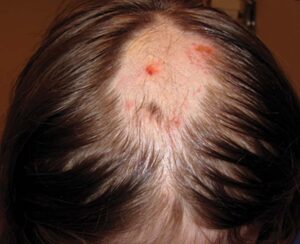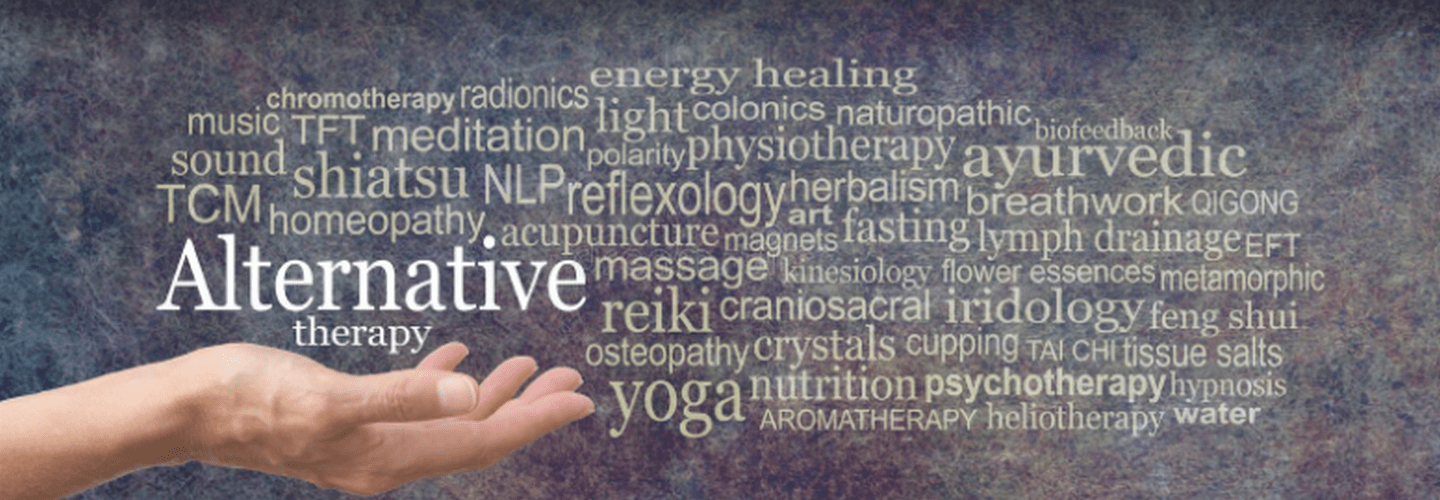
Trichotillomania Hair Pulling Disorder Helped With Hypnosis
Struggling with trichotillomania can be a draining experience, but have you considered the potential benefits of hypnosis in managing this challenging disorder? Imagine a path towards regaining control over compulsive hair-pulling behaviors.
By exploring how hypnotherapy can assist in uncovering underlying triggers and developing personalized coping mechanisms, you may find a new perspective on addressing this condition.
The transformative power of hypnosis offers a promising avenue for those seeking relief from the grip of trichotillomania, providing a holistic approach towards enhancing self-awareness and reclaiming mastery over impulses.
Understanding Trichotillomania and Hypnotherapy
 Understanding Trichotillomania and hypnotherapy involves recognizing the compulsive nature of hair pulling and the therapeutic benefits of inducing deep relaxation through hypnosis. Trichotillomania, a condition marked by compulsive hair pulling, can be effectively addressed with hypnotherapy. This form of therapy helps individuals identify triggers that lead to hair pulling episodes and teaches new ways to respond to these urges. By inducing a state of deep relaxation, hypnosis aids in managing stress levels, reducing anxiety, and promoting self-soothing behaviors. Through hypnotherapy, individuals can gain insight into the subconscious factors contributing to their hair-pulling habits and develop strategies to regain control.
Understanding Trichotillomania and hypnotherapy involves recognizing the compulsive nature of hair pulling and the therapeutic benefits of inducing deep relaxation through hypnosis. Trichotillomania, a condition marked by compulsive hair pulling, can be effectively addressed with hypnotherapy. This form of therapy helps individuals identify triggers that lead to hair pulling episodes and teaches new ways to respond to these urges. By inducing a state of deep relaxation, hypnosis aids in managing stress levels, reducing anxiety, and promoting self-soothing behaviors. Through hypnotherapy, individuals can gain insight into the subconscious factors contributing to their hair-pulling habits and develop strategies to regain control.
Hypnotherapy plays a crucial role in addressing trichotillomania by helping individuals achieve a state of relaxation that counters the urge to pull hair. By understanding the triggers associated with hair pulling and promoting relaxation through hypnosis, individuals can work towards overcoming this compulsive behavior. Self-soothing techniques learned during hypnotherapy sessions can provide individuals with alternative ways to manage stress and anxiety, ultimately leading to improved control over their hair-pulling impulses.
Identifying Triggers for Hair Pulling
 To address hair-pulling triggers effectively, it’s crucial to identify both internal sensations and external imperfections that prompt the behavior in individuals with trichotillomania. Triggers for hair pulling can stem from stress, anxiety, genetic predisposition, or the need for self-soothing. These triggers often result in temporary satisfaction during the act but are followed by negative emotions afterward.
To address hair-pulling triggers effectively, it’s crucial to identify both internal sensations and external imperfections that prompt the behavior in individuals with trichotillomania. Triggers for hair pulling can stem from stress, anxiety, genetic predisposition, or the need for self-soothing. These triggers often result in temporary satisfaction during the act but are followed by negative emotions afterward.
It’s common for triggers to be associated with specific locations or environments, making it essential to recognize patterns and situations that lead to hair pulling episodes. By pinpointing and processing emotions and stressors, individuals can gain a better understanding of what prompts their hair-pulling behavior.
Through this awareness, coupled with techniques like hypnotherapy, individuals can develop strategies to manage and reduce the urge to pull hair, ultimately regaining control over their actions and emotions. Identifying triggers is a crucial step in the journey towards overcoming trichotillomania and achieving improved scalp condition and overall well-being.
Developing Personalized Coping Strategies
 Developing personalized coping strategies for trichotillomania involves actively identifying your individual triggers and stressors. To effectively manage hair pulling urges, consider the following:
Developing personalized coping strategies for trichotillomania involves actively identifying your individual triggers and stressors. To effectively manage hair pulling urges, consider the following:
- Track Your Triggers: Keep a journal to record situations or emotions that lead to hair pulling. Understanding these triggers can help you anticipate and prevent episodes.
- Create a Distraction Plan: Develop a list of activities or techniques to divert your focus when feeling the urge to pull hair. This can help shift your attention away from the behavior.
- Practice Relaxation Techniques: Incorporate deep breathing, meditation, or progressive muscle relaxation into your daily routine to reduce stress levels. Relaxation methods can help calm your mind and decrease the impulse to pull hair.
Benefits of Hypnosis for Hair Pulling
 Track your hair pulling triggers and behaviors effectively with hypnotherapy to regain control over your responses and promote calmness. Hypnosis can heighten your awareness of the triggers that lead to hair pulling in cases of trichotillomania. By identifying these triggers, you can develop personalized plans to address them.
Track your hair pulling triggers and behaviors effectively with hypnotherapy to regain control over your responses and promote calmness. Hypnosis can heighten your awareness of the triggers that lead to hair pulling in cases of trichotillomania. By identifying these triggers, you can develop personalized plans to address them.
Hypnotherapy empowers you to self-soothe in moments of stress, reducing the urge to pull your hair. Through this process, you can learn to manage hair pulling relapses effectively and minimize their impact on your scalp condition.
Hypnosis aids you in regaining control over your responses, decreasing the need for hair pulling by fostering a sense of calmness and confidence. Utilizing hypnotherapy can be a valuable tool in your journey to overcome trichotillomania, allowing you to address the root causes of your hair pulling behavior and work towards a healthier relationship with your hair.
Addressing Past Experiences With Hypnotherapy
 Exploring past experiences through hypnotherapy can provide valuable insights into the root causes of trichotillomania. By delving into your subconscious mind, hypnotherapy helps uncover underlying emotions, traumas, and patterns that may be linked to your hair-pulling behavior. Here are three ways hypnotherapy can assist in addressing past experiences:
Exploring past experiences through hypnotherapy can provide valuable insights into the root causes of trichotillomania. By delving into your subconscious mind, hypnotherapy helps uncover underlying emotions, traumas, and patterns that may be linked to your hair-pulling behavior. Here are three ways hypnotherapy can assist in addressing past experiences:
- Unveiling Traumas: Hypnotherapy creates a safe environment to explore past traumas linked to hair pulling, allowing you to process and release associated emotions.
- Identifying Emotional Triggers: Through hypnosis, you can pinpoint specific emotional triggers that drive the urge to pull hair, aiding in developing coping mechanisms.
- Understanding Subconscious Patterns: Hypnotherapy reveals subconscious patterns contributing to trichotillomania, offering insights into how past experiences influence current behavior.
Regaining Control Over Hair Pulling
 To regain control over hair pulling, hypnotherapy offers effective strategies for addressing triggers and developing new responses. Hypnosis can help you identify the triggers that make you feel the urge to pull your hair.
To regain control over hair pulling, hypnotherapy offers effective strategies for addressing triggers and developing new responses. Hypnosis can help you identify the triggers that make you feel the urge to pull your hair.
By delving into these triggers, hypnotherapy can assist you in understanding why you feel compelled to pull your hair and help you develop healthier coping mechanisms. Through hypnosis, you can learn to recognize the moments when you’re most likely to engage in hair pulling and replace that behavior with more constructive actions.
Hypnotherapy aims to provide you with the tools to break the cycle of hair pulling and regain a sense of control over your actions. By seeking help through hypnosis, you can work towards managing the urge to pull your hair and ultimately improve your overall well-being.
Improving Scalp Condition Through Hypnosis
 To enhance scalp condition, hypnosis works towards reducing the urge to pull hair in individuals with trichotillomania, ultimately promoting healthier hair growth. Through hypnotherapy, individuals can often stop the cycle of hair pulling and even reverse the damage done to their scalp.
To enhance scalp condition, hypnosis works towards reducing the urge to pull hair in individuals with trichotillomania, ultimately promoting healthier hair growth. Through hypnotherapy, individuals can often stop the cycle of hair pulling and even reverse the damage done to their scalp.
Hypnosis helps address underlying stressors that contribute to trichotillomania, leading to improved relaxation levels and reduced hair pulling tendencies. By teaching effective self-soothing techniques, hypnosis can aid in scalp healing and regrowth.
Individuals have found that hypnotherapy sessions focusing on enhancing relaxation and reducing hair pulling behaviors result in improved scalp health. Even though it may take time and consistency, hypnosis has been found to be a valuable tool in improving scalp condition for individuals struggling with trichotillomania.
With the right mindset and dedication, hypnosis can support individuals in achieving healthier hair and a better scalp overall.
Success Stories of Hypnotherapy for Trichotillomania
 In successful cases of hypnotherapy for trichotillomania, individuals have reported significant reductions in hair pulling behaviors, improved relaxation levels, regrowth of hair, and a newfound sense of control.
In successful cases of hypnotherapy for trichotillomania, individuals have reported significant reductions in hair pulling behaviors, improved relaxation levels, regrowth of hair, and a newfound sense of control.
Through hypnotherapy, clients find relief from the compulsive urge to pull out their hair, experiencing a more relaxed state of mind that aids in managing stress and anxiety triggers. This newfound relaxation not only reduces the frequency of hair pulling but also promotes hair regrowth, leading to improved scalp condition.
By delving into the underlying triggers and past experiences contributing to trichotillomania, hypnotherapy equips individuals with personalized strategies to regain control over their impulses. Clients often express satisfaction with the practical and quick results achieved through hypnosis, highlighting its effectiveness in addressing the root causes of hair pulling habits.
Trichotillomania Hair Pulling Disorder Helped with Hypnosis
Frequently Asked Questions
What Therapy Is Best for Trichotillomania?
For trichotillomania, hypnotherapy is a highly effective therapy that helps you regain control over hair-pulling behaviors. It works by increasing your awareness of triggers and teaching you personalized strategies to manage the condition.
Through deep relaxation induced by hypnosis, stress and anxiety levels decrease, helping you develop new responses to curb hair pulling. Addressing past experiences and creating tailored plans, hypnotherapy promotes relaxation, control, and improved scalp health.
Do Any Celebrities Have Trichotillomania?
Celebrities with trichotillomania include Olivia Munn, Megan Fox, Justin Timberlake, and Charlize Theron. Each has openly shared their struggles, raising awareness about this disorder.
Hypnotherapy can help address trichotillomania by increasing awareness, identifying triggers, and developing personalized strategies. It induces relaxation, reducing stress and anxiety levels, aiding individuals in regaining control.
How Did You Beat Trichotillomania?
To beat trichotillomania, you focused on triggers, learned to relax, and managed stress effectively. By identifying what caused hair pulling and developing new coping strategies, you gained control over the urge.
Hypnosis was pivotal in disrupting the habit of pulling hair in certain situations. Incorporating self-soothing techniques and positive self-talk played a significant role in your success against trichotillomania.
Understanding how hypnosis helps manage trichotillomania was crucial for your recovery.
What Living With Trichotillomania Is Really Like?
Living with trichotillomania can be challenging. You might feel the urge to pull your hair, experiencing temporary relief but later dealing with guilt or shame. Triggers, whether internal or external, can fuel this behavior.
Starting usually in puberty, it can affect anyone, often more prevalent in women. By seeking help, like hypnotherapy, you can learn to manage these impulses, regain control, and improve your overall well-being.
Make An Appointment With Mark
 Do not be afraid to reach out to me, Mark E Wilkins, to assist you in any issues you might have. Most Hypnotherapy sessions last 2 hours and EFT Sessions are usually handled with one session. Life Coaching is 45 minute session, once a week. Self-Hypnosis is taught in one session, and lasts a lifetime.
Do not be afraid to reach out to me, Mark E Wilkins, to assist you in any issues you might have. Most Hypnotherapy sessions last 2 hours and EFT Sessions are usually handled with one session. Life Coaching is 45 minute session, once a week. Self-Hypnosis is taught in one session, and lasts a lifetime.
To make an appointment, first listen to the Pre-talk and fill out he Complementary Healthcare Provider Disclosure. The use the Contact Form to request an appointment with the Bohol Hypnosis Expert.
Self-help downloads are available. The self hypnosis program to teach you how to self-hypnotize is here.
Conclusion
You’ve learned how hypnotherapy can help you break free from the cycle of trichotillomania, offering relief and control over your hair-pulling habits. By uncovering triggers, developing coping strategies, and enhancing self-awareness, hypnosis empowers you to reclaim mastery over your focus and responses.
Imagine a life free from the grip of trichotillomania, where relaxation, control, and improved scalp condition are within reach. Embrace the transformative power of hypnotherapy and take the first step towards a brighter future.





